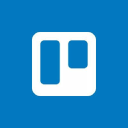How This Founder Built An 8 Figure Travel Startup In 2 Years
Hi, My name is Ivan Saprov, CEO and founder of Voyagu, a San Francisco-based startup founded in August 2020. I have 10 years of experience in travel and tech.
Voyagu is a travel management platform, which I like to call “the Uber of trip booking.” It’s powered by self-developed machine learning-based technology with a new generation search engine for better, easier, more personalized travel booking.
Voyagu is a product for both travelers and travel agents. (You can think of it as a kind of “B2B2C” model.) On one side, it is offered to travelers for travel booking, planning, service, and support. On the other side, it is offered to professionals as a travel management platform with AI to back the work of travel advisors.
Our uniqueness is rooted in the fact that Voyagu is both a client-focused travel brand and a professional travel management platform rolled into a single product. We’re confident that this intersection of simplified travel tech and human travel expertise (plus the empathy and problem-solving that accompanies this expertise) is something that travelers want.
Voyagu has outstanding potential; we’re currently tripling our year-over-year growth and expecting to hit double-digit millions in gross...














